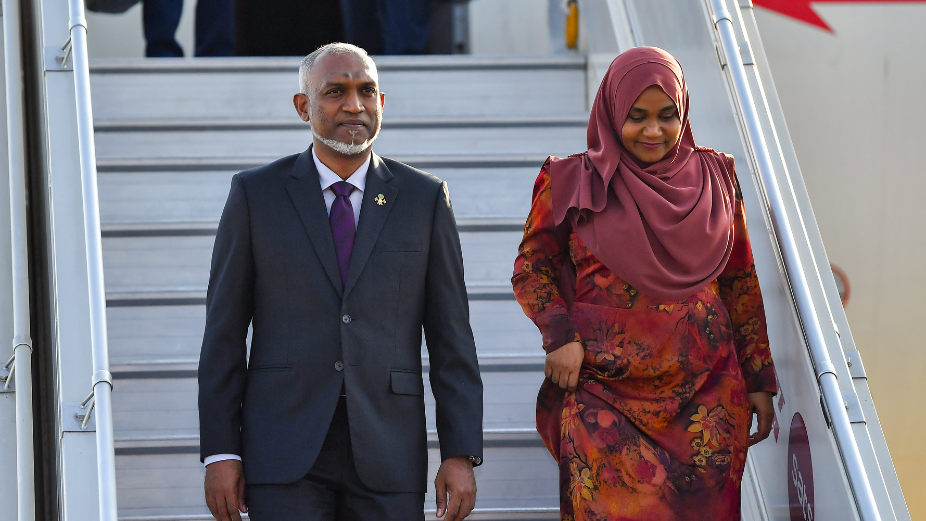
President Dr Mohamed Muizzu has ruled out seeking assistance from the International Monetary Fund (IMF) to address the country’s ongoing economic challenges, despite mounting concerns over a possible debt default. In an email interview with the BBC, ahead of his state visit to India, President Muizzu expressed confidence in the Maldives’ ability to navigate the crisis without resorting to an IMF programme.
“We have our own home-grown agenda,” the President stated, reaffirming his government’s commitment to managing the fiscal situation internally. His comments come at a time when the Maldives’ foreign exchange reserves have plummeted to just USD 440 million, sufficient to cover only one-and-a-half months of imports. These alarming figures have led to widespread speculation about the nation’s ability to meet its external debt obligations.
Last month, global credit rating agency Moody’s downgraded the Maldives’ credit rating, citing increased default risks. According to the agency, the country’s foreign reserves remain significantly below the government’s external debt service, which stands at approximately USD 600 million in 2025 and over USD 1 billion in 2026. Despite this, President Muizzu maintained that the Maldives is not on the brink of a sovereign debt default and that his administration is not considering an IMF intervention as part of its strategy.
Instead, the President is turning to other avenues for support, with a focus on securing financial aid from regional allies. During his current visit to India, he is expected to discuss a potential bailout worth hundreds of millions of dollars to ease the pressure on the Maldives’ foreign currency reserves. “India is fully cognizant of our fiscal situation, and as one of our biggest development partners, will always be ready to ease our burden, find better alternatives and solutions to the challenges we face,” President Muizzu told the BBC.
The President’s refusal to engage with the IMF contrasts with his administration’s ongoing efforts to stabilise the economy through regional partnerships. His visit to India is seen as a crucial step in securing financial assistance, particularly as relations between the two countries have been strained in recent months.
While the Maldives has sought to strengthen ties with China in recent years, including allowing a Chinese research ship to dock in the country earlier this year, analysts suggest that financial support from Beijing has not materialised as hoped. As a result, President Muizzu’s visit to India is being viewed as a pragmatic attempt to secure much-needed funds, highlighting the nation’s reliance on India as a key economic partner.
Despite these challenges, President Muizzu reiterated his commitment to the Maldives’ “Maldives First” policy, which he described as a strategy based on mutual respect, non-interference, and the pursuit of peace and prosperity in the Indian Ocean region. However, with economic pressures mounting and the global community closely watching, questions remain over how the Maldives will navigate its financial difficulties without IMF involvement or a clear alternative plan in place.
For now, all eyes are on the outcome of the President’s visit to India and the potential for a financial rescue package that could alleviate some of the economic strain facing the island nation.












